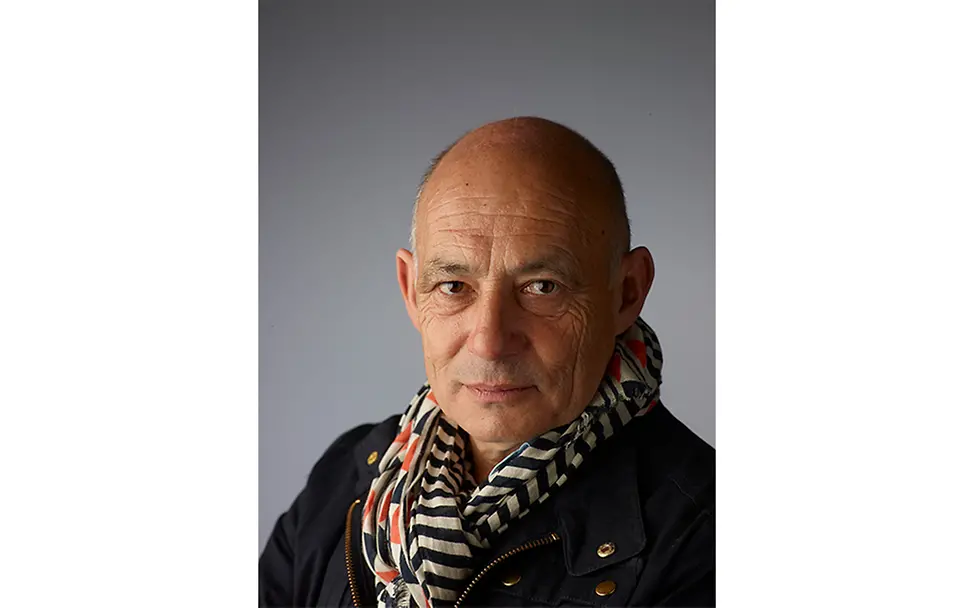Pascal Maitre, France
Democratic Republic of the Congo: A virus on the rise
Formerly known as monkeypox, a rare viral disease known as mpox has been on the rise in parts of Africa for some time. The Democratic Republic of the Congo is one of the worst affected countries with approx. 40,000 suspected cases, more than 8,000 confirmed cases and over 1,000 deaths so far. For the second time since 2022, the WHO has declared the highest alert level for the virus. There have also been confirmed cases of mpox in the USA and Germany.
Although there is a vaccine against mpox, the supply is insufficient, especially in poorer countries. Children are particularly at risk. The symptoms include a rash with blisters or sores (ulcers) and pneumonia, brain inflammation, eye infections and even loss of sight.
French photographer Pascal Maitre went to the most affected areas and documented the treatment of children at Kavumu Hospital in the Kivu region in eastern Congo.
 Bild 1 von 13 © Pascal Maitre, France (The VII Foundation, for Paris Match)
Bild 1 von 13 © Pascal Maitre, France (The VII Foundation, for Paris Match) Bild 2 von 13 © Pascal Maitre, France (The VII Foundation, for Paris Match)
Bild 2 von 13 © Pascal Maitre, France (The VII Foundation, for Paris Match) Bild 3 von 13 © Pascal Maitre, France (The VII Foundation, for Paris Match)
Bild 3 von 13 © Pascal Maitre, France (The VII Foundation, for Paris Match) Bild 4 von 13 © Pascal Maitre, France (The VII Foundation, for Paris Match)
Bild 4 von 13 © Pascal Maitre, France (The VII Foundation, for Paris Match) Bild 5 von 13 © Pascal Maitre, France (The VII Foundation, for Paris Match)
Bild 5 von 13 © Pascal Maitre, France (The VII Foundation, for Paris Match) Bild 6 von 13 © Pascal Maitre, France (The VII Foundation, for Paris Match)
Bild 6 von 13 © Pascal Maitre, France (The VII Foundation, for Paris Match) Bild 7 von 13 © Pascal Maitre, France (The VII Foundation, for Paris Match)
Bild 7 von 13 © Pascal Maitre, France (The VII Foundation, for Paris Match) Bild 8 von 13 © Pascal Maitre, France (The VII Foundation, for Paris Match)
Bild 8 von 13 © Pascal Maitre, France (The VII Foundation, for Paris Match) Bild 9 von 13 © Pascal Maitre, France (The VII Foundation, for Paris Match)
Bild 9 von 13 © Pascal Maitre, France (The VII Foundation, for Paris Match) Bild 10 von 13 © Pascal Maitre, France (The VII Foundation, for Paris Match)
Bild 10 von 13 © Pascal Maitre, France (The VII Foundation, for Paris Match) Bild 11 von 13 © Pascal Maitre, France (The VII Foundation, for Paris Match)
Bild 11 von 13 © Pascal Maitre, France (The VII Foundation, for Paris Match) Bild 12 von 13 © Pascal Maitre, France (The VII Foundation, for Paris Match)
Bild 12 von 13 © Pascal Maitre, France (The VII Foundation, for Paris Match) Bild 13 von 13 © Pascal Maitre, France (The VII Foundation, for Paris Match)
Bild 13 von 13 © Pascal Maitre, France (The VII Foundation, for Paris Match)
One of them is seven-month-old Japhet, whose blisters are being treated with the antiseptic dye ‘Gentian Violet.’ His 19-year-old mother Christevi cares for and looks after the little one. The health station where adults are also treated is only sparsely equipped. Nevertheless, it is still better there than the mud floor of their huts or in camps like the one in Busharaga. There, the virus can easily spread among the 16,000 internally displaced people.
Photographer: Pascal Maitre, France (The VII Foundation, for Paris Match)

Pascal Maitre, born in Buzancais in 1955, mostly reports from Africa and has been one of the most internationally renowned photographers for decades. After studying psychology, he started his career as a photojournalist with the Jeune Afrique press group. His photo series from over 40 African countries, as well as from Latin America, the Middle East, Afghanistan, and Siberia are regularly featured in major magazines in France (Figaro Magazine, Paris Match), Germany (GEO, Stern) and the USA (National Geographic). Maitre has reported on how 650 million people in Africa manage without electric lighting or that millions depend on charcoal, along with its environmental impact.
Credits Text: Peter-Matthias Gaede for UNICEF
- 1st Prize: Avishag Shaar-Yashuv & Samar Abu EloufThe two winning images of the UNICEF Photo of the Year 2024 show the main victims of the cruel violence in Israel and Gaza: the children. These pictures serve as calm and dignified witnesses to internal and external wounds.
- 3rd Prize: Maylis RollandThe photo series of French photographer Maylis Rolland shows the wonderful moments at the University Hospital of Rennes, where the fragile lives of tiny babies are stabilized with the help of medical equipment and intensive human care.
- Honorable MentionsIn addition to the winning photo series, the independent jury also awarded seven honorable mentions. The stories show children from many different countries all over the world.